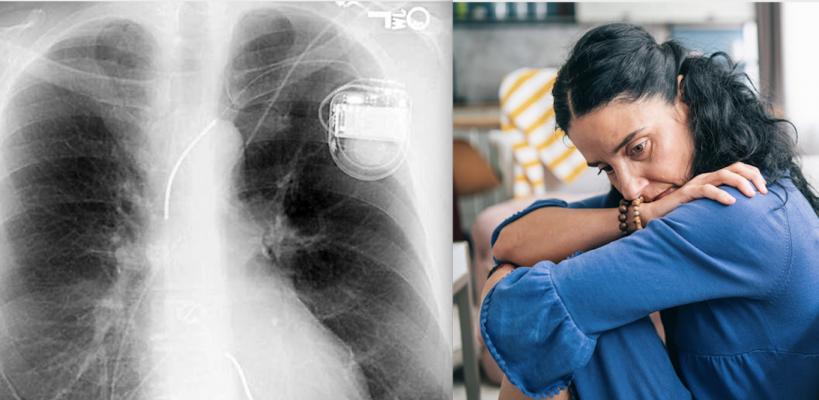
April 26, 2021 — Patients receiving an implantable cardioverter defibrillator (ICD) should be regularly screened for anxiety and depression, according to research presented at European Heart Rhythm Association (EHRA) 2021 conference this week, an online scientific congress of the European Society of Cardiology (ESC).[1]
“Most patients adapt well to living with an ICD. For others it completely changes their life, with worries about shocks from the device, body image, and livelihood as some need to change their job,” said study author Professor Susanne Pedersen of Odense University Hospital, Denmark.
Previous studies have shown that anxious or depressed ICD patients have poorer quality of life and increased risks of arrhythmias and death.[2,3,4] This study examined how many patients develop anxiety or depression after ICD implantation, as screening tends to be a one-time event.
The study used data from DEFIB-WOMEN, a national, multicentre, prospective, observational study of patients with a first-time ICD.[5,6] Patients who received a first-time ICD were recruited consecutively between June 2010 to April 2013 at five hospitals in Denmark and followed up for 24 months.
The study included 1,040 patients who completed questionnaires on anxiety, depression, and physical quality of life at baseline, and 3, 6, 12, and 24 months. Information on demographic and clinical data was obtained from the Danish Pacemaker and ICD Register.
With respect to new onset anxiety, the cumulative incidence over the 24-month follow-up period was 14.5%. With respect to new onset depression, the cumulative incidence over the 24-month follow-up period was 11.3%.
Greater age was associated with a reduced risk of new onset anxiety, with a hazard ratio (HR) of 0.54, while being married, Type D personality, and lower self-reported physical functioning were associated with an increased risk, with HRs of 1.66, 2.50, and 1.48, respectively.
Regarding new onset depression, higher age and higher self-reported physical functioning were associated with reduced risk, with HRs of 0.57 and 0.46, respectively. Smoking, type D personality, and lower self-reported physical functioning were associated with an increased risk, with HRs of 2.13, 2.53, and 1.64, respectively.
“Our results suggest that more regular screening for depression and anxiety could identify patients who might benefit from additional support,” said Professor Pedersen. “Taken together, our findings indicate that younger patients, those with poor physical function, and those with type D personality are more likely to become anxious or depressed. People with type D personality tend to worry while not sharing negative emotions with others, which may compromise their mental health.”
Professor Pedersen noted that ICD implantation is often a day procedure. While some patients look forward to going home, others become anxious and feel it is too soon as they have had no time to adjust. She said: “One way to remedy this could be digital support, using an app or platform to provide information and reassurance, enabling patients to talk to a health professional if needed, and referring those with high anxiety or depression scores to a psychologist for an online treatment programme. We are piloting this approach, and in my experience, it is a minority of patients who need it, but for those who do, it can mean a world of difference.”
Funding: The DEFIB-WOMEN study is supported with a grant (09-10-R75-A2713-22565) from the Danish Heart Foundation.
References:
1. EHRA 2021 virtual meeting abstract title: New onset depression and anxiety in patients with an implantable cardioverter defibrillator during 24 months of follow-up.


 January 05, 2026
January 05, 2026 









